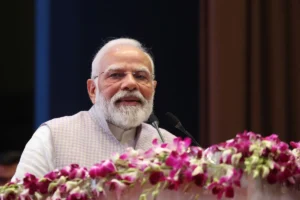
China and Phillipinnes to lower tensions at South China Sea
Following a year of highly publicized and heated ship-to-ship clashes in the South China Sea that sparked fears of armed involvement in the area, China and the Philippines announced that they have decided to cooperate toward reducing tensions.
China and Philippines to communicate to manage differences
The two parties decided to keep up their improved communication and amicable conversations to handle their disputes at sea, “especially to manage well the situation at Ren’Ai reef,” according to a statement released by China’s Ministry of Foreign Affairs on Thursday.
Ren’Ai reef is the Chinese name for the area where the US and Philippines’ ships have clashed many times in recent months, with the US calling it Second Thomas Shoal and the Philippines calling it Ayungin Shoal.
Manila said in November that in disputed waters, a Chinese coast guard ship and her companion vessels engaged in risky maneuvers and fired a water cannon at a Philippine supply ship. China refuted the report, claiming that its actions were appropriate.
Also Read: Greenland’s Ice Sheet Shrank By 5,091 Square Kilometres In Four Decades
Tensions to limit on the South China Sea
During their eighth meeting on the South China Sea, which started in 2017, China and the Philippines declared on Wednesday in Shanghai that they had reached an agreement to reduce tensions.
“The two sides had frank and productive discussions to de-escalate the situation in the South China Sea and both sides agreed to calmly deal with incidents, if any, through diplomacy,” the Philippines’ Department of Foreign Affairs said in a statement on Wednesday.
Many people believe that the territorial conflicts in the South China Sea could ignite an armed confrontation. The South China Sea is claimed by a number of nations, including China, Brunei, Malaysia, Vietnam, and Malaysia.
China is upset that on Monday, President Ferdinand Marcos Jr. of the Philippines congratulated the victor of the most recent presidential election in Taiwan.Taiwan, an autonomous island under Chinese sovereignty, selected a candidate from a party that supports Taiwan’s independence. The ambassador of the Philippines was called by China’s Foreign Ministry to register their grievances.
China sees any official interaction with Taiwan’s government as an acquiescence in its sovereignty.
To read more such news, download Bharat Express news apps


















